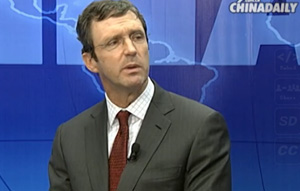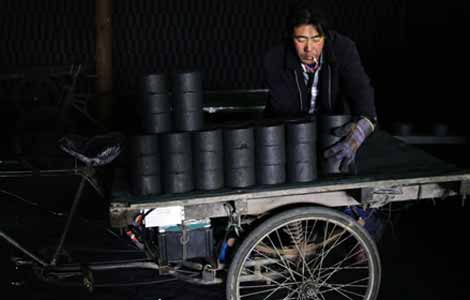Deal reached in Iranian nuclear talks
Updated: 2013-11-25 07:13
By Zhao Yanrong, Mo Jingxi and Wu Jiao (China Daily USA)
|
||||||||
Negotiations could become model for handling other international disputes
The landmark deal on Iran's nuclear program may change the Middle East's geopolitical landscape, analysts said.
But they warned that all sides must keep their promises and it will take arduous effort to reach a final agreement.
As China has been playing a constructive role in the multilateral talks, experts also said the primary agreement will enhance China's cooperation with the region.
The agreement between Iran and the five permanent members of the United Nations Security Council plus Germany, nailed down after more than four days of negotiations in Geneva, halted progress on Iran's nuclear program in exchange for limited sanctions relief.
Under the deal, Iran will commit to halt uranium enrichment above 5 percent and also to neutralize its stockpile of near-20 percent enriched uranium. Iran will also halt work at its plutonium reactor and provide access to nuclear inspectors.
In return, the United States would refrain from imposing new sanctions and will allow the Iranian government access to a portion of the revenue that it has been denied through sanctions.
The relief, valued at about $7 billion, includes suspending certain sanctions on gold and precious metals, Iran's auto sector and petrochemical exports, licensing safety-related repairs and inspections inside Iran for certain Iranian airlines, and allowing the purchase of Iranian oil at its current price, according to the White House.
China welcomed the deal, which helps safeguard peace and stability in the Middle East, said Foreign Minister Wang Yi, who attended the negotiations in Geneva.
The negotiations proved that no matter how difficult the issue could be, as long as all parties adhere to dialogue, patience and goodwill, a proper solution would be reached eventually, he said.
Some of the observers take the deal as the starting point of warming Iran-US ties, while others argue that it will still be difficult for the two countries to really build mutual trust.
Wu Sike, China's special envoy to the Middle East, said Iranian President Hassan Rouhani's flexible foreign policy has improved the country's relationships with Western countries, and the deal is a milestone for ties between Iran and the US.
"But more challenges await all parties on the way to reaching a final agreement," Wu added.
According to Wu, more specific issues include the definition of Iran's peaceful use of nuclear energy, how to keep Iran's nuclear programs transparent in order to have the international community accept Iran's nuclear rights, and how to normalize the country's relations with the US, Israel and others in the region.
Li Shaoxian, a researcher of Middle East studies at China Institutes of Contemporary Relations, said the way the US dealt with the Syrian chemical weapon issue and the Iranian nuclear negotiations, show it is adjusting its strategies in the Middle East to deal with those regional issues through diplomatic measures and avoid military action.
"The geopolitical changes, caused by the possible improvement of US-Iran relations, will have an impact on relations between the US and Israel, Jordan, Saudi Arabia, Egypt and the United Arab Emirates," he said.
In a nationally broadcast speech, Rouhani said the accord recognizes Iran's "nuclear rights", even if that precise language was kept from the final document because of Western resistance, AP reported.
US President Barack Obama hailed the deal as "an important first step toward a comprehensive solution" to Iran's nuclear program, according to a statement from the White House.
But the deal will not change the fundamental conflicts between the US and Iran, according to Dong Manyuan, deputy director of the China Institute of International Studies.
"The deal can only meet temporary requirements from the US and Iran, since the US wants to maintain the stability of the Middle East to secure its national interest in the region, and Iran wants to improve its economic development without sanctions," Dong said.
But the two countries' geopolitical goals compete with each other, as Iran wants to be the leader of Islamic countries and the US wants to have dominant influence in the Middle East.
"The US will not totally cancel the sanctions on Iran, especially the financial sanctions, and the latest agreement will not change the fact that US and Israel take Iran as a threat," Dong said.
Since China has been effectively communicating with all parties in all talks, China's role in the Middle East will be enhanced, Dong said.
The relief of sanctions on Iran is good for China to develop more economic cooperation with the country as well as the region, Li said.
"The sanctions on Iran largely limited Iran's oil exports to China in the past, and the possibility of Iran going to a regional war in the Middle East also prevents China from more economic cooperation in the region," Li said.
The deal is a good example for handling other international affairs in the future, such as the nuclear issue in the Democratic People's Republic Korea, Wu said.
"The UN Security Council are working as an important mechanism in reaching the deal, and the political negotiation secured a peaceful way in dealing with the controversial issue. We should borrow those methods to handle other affairs," he said.
Contact the writer at zhaoyanrong@chinadaily.com.cn
Reuters and Xinhua contributed to this story.
(China Daily USA 11/25/2013 page3)
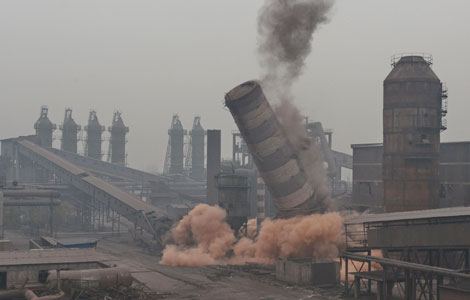
 Cutting output to help ease pollution
Cutting output to help ease pollution
 Sochi Olympic flame plunges into largest freshwater lake
Sochi Olympic flame plunges into largest freshwater lake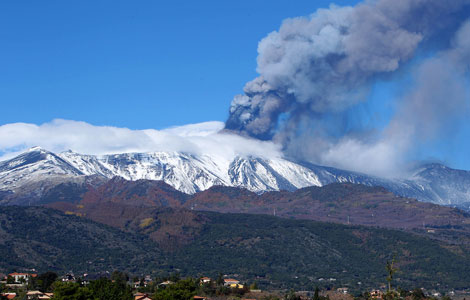
 Mount Etna erupts, lighting up Sicilian sky
Mount Etna erupts, lighting up Sicilian sky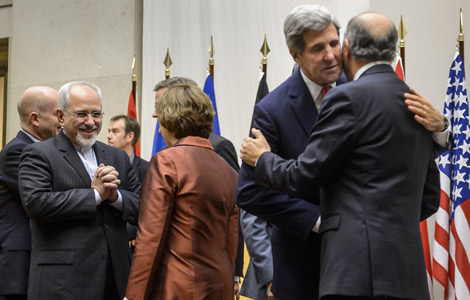
 Deal reached in Iranian nuclear talks
Deal reached in Iranian nuclear talks
 Bitter pill for traditional Chinese medicine
Bitter pill for traditional Chinese medicine
 Rescuers work in Tacloban
Rescuers work in Tacloban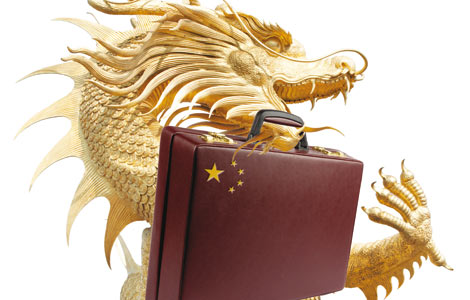
 Roar of the East being heard
Roar of the East being heard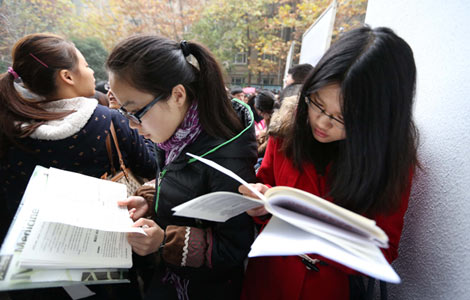
 1.12m seek government jobs
1.12m seek government jobs
Most Viewed
Editor's Picks

|

|

|

|

|

|
Today's Top News
US irresponsible for suspending ITA negotiations
Vice-Premier ends US trip in NYC
China to target price fixing: report
Shenyang to offer 72-hour visa-free stays
Japanese PM concerned over China's air defense zone
Creating the next Asian global name
Deal reached in Iranian nuclear talks
Getting to know Tianjin
US Weekly

|

|
